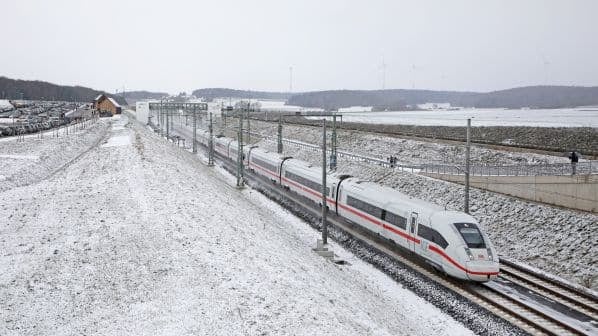THE central German state of Hessen has announced it is waiving the requirement for detailed initial planning to be undertaken for the proposed high-speed line from Fulda to Gerstungen, which would reduce journey times on the Frankfurt - Fulda - Erfurt - Berlin/Leipzig route.
Together with the new line planned from Hanau to Fulda in Hessen, it is a key enabler for the planned Deutschland Takt national regular-interval timetable. Both projects are classified as urgent requirements in the German Federal Transport Plan.
Hessen’s economics and transport minister, Mr Tarek Al-Wazir, told local media: “We have to get faster when planning and building rail routes, we need better rail transport quickly.”
He added that all the required stages of the planning process can be undertaken, but much more quickly by focusing only on the preferred alignment which has already been the subject of detailed public consultation. No alternative alignment was proposed during consultation that had a lower environmental impact.

Al-Wazir said that the consultation process that German Rail (DB) has been undertaking since 2018 “shows that comprehensive and early communication can also be a means of accelerating planning for major projects."
According to Al-Wazir, cutting years from the time needed to obtain planning approval will not only enable the new line to be completed sooner but will also save taxpayers’ money. DB had submitted its preferred route option along with a request that regional planning procedures should be waived in December 2022.
The preferred alignment branches from the Hannover - Würzburg high-speed line at Langenschwarz, north of Fulda. It then runs through the town of Bad Hersfeld alongside the existing railway, enabling high-speed services to serve this town, before joining the Bebra - Eisenach line east of Ronshausen.
Much of the 41km double-track high-speed line will be in 28km of tunnels or built alongside existing railways. The new Fulda - Gerstungen line should reduce journey times between Frankfurt and Erfurt or Berlin by 15 minutes.
For detailed data on high-speed projects around the world, subscribe to IRJ Pro.

